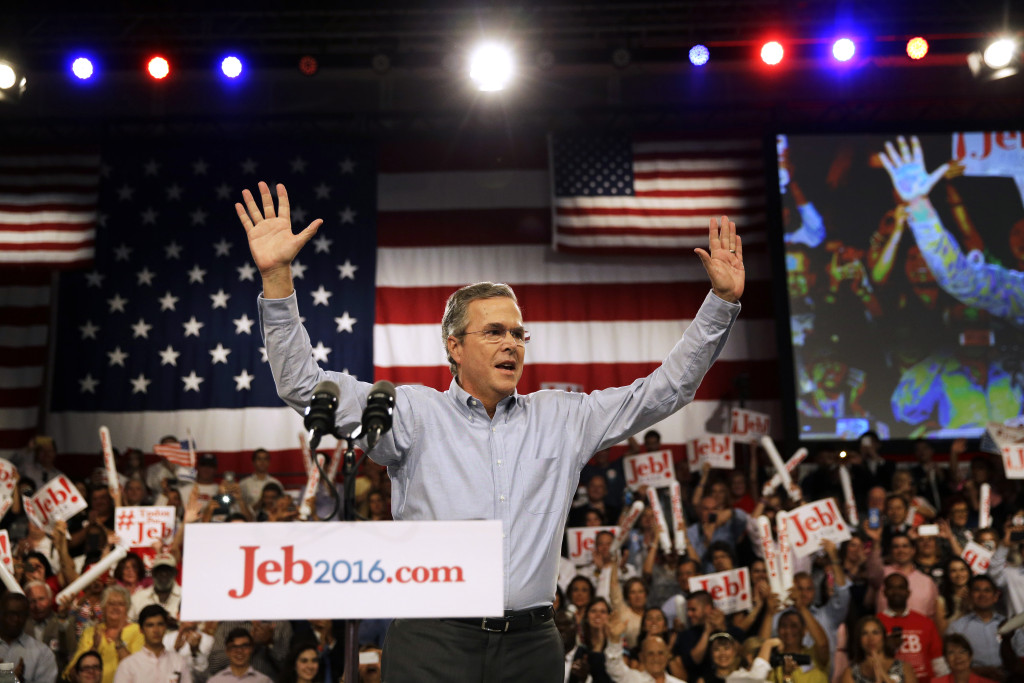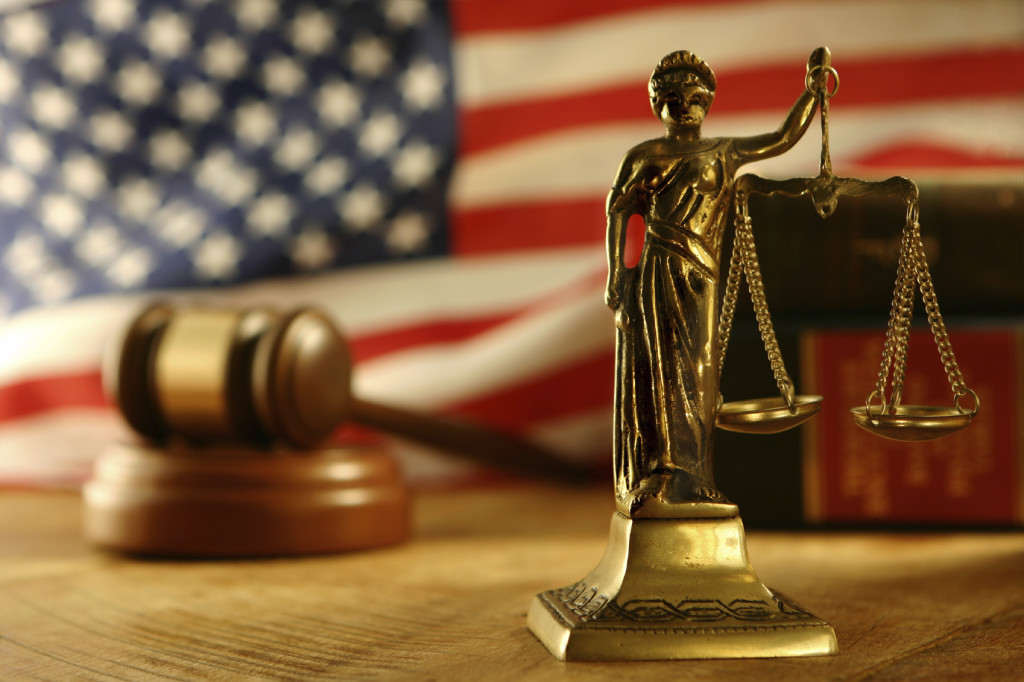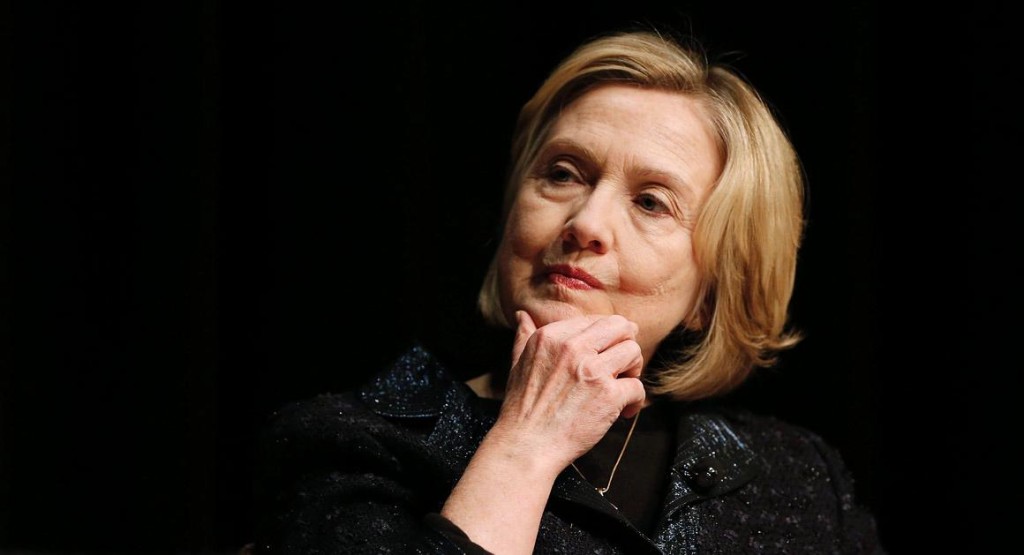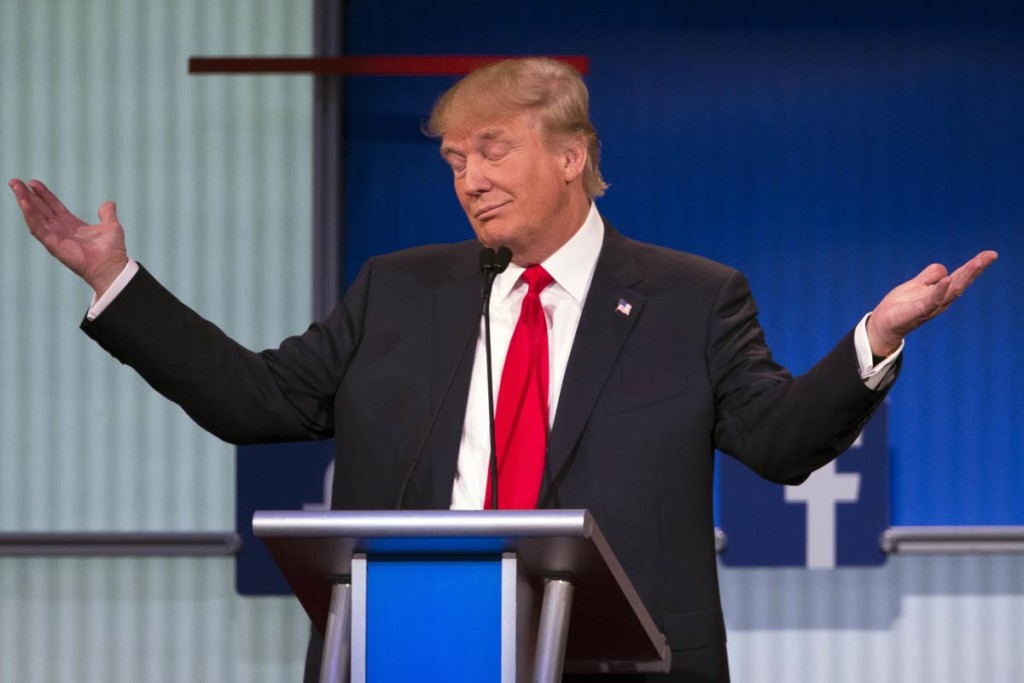In Nevada, Jeb Bush says key to winning is to campaign with joy

A day after sharply criticizing Hillary Rodham Clinton while outlining his strategy to fight the Islamic State, Republican presidential candidate Jeb Bush said Wednesday the key to winning the 2016 election is “campaigning with your arms wide open” and “joy in your heart.” During a meet-and-greet in Reno, the former Florida governor told about 200 people to resist getting behind those candidates who appeal to voters’ anger and fear about the future. “I know how to win. You win campaigning with your arms wide open. You win with joy in your heart. You don’t win appealing to people’s basic fears and angst. You win by giving them a sense that their future can be brighter,” he said. Bush said campaigning positively is a better approach. “You win respecting everybody. Even if they don’t agree with you, you respect them and you try to persuade them that our ideals, our philosophy, our ideology is the winning one for the majority of Americans,” Bush said. Bush’s campaign swing through Nevada came the day after he hammered Clinton and President Barack Obama during a speech at the Ronald Reagan Presidential Library, arguing the departure of U.S. forces from Iraq in 2011 under their watch allowed Islamic State militants to take hold in the Middle East. In that speech, he questioned the idea that America and its allies are safer today than when Obama, with Clinton as his secretary of state, took office in 2009. But Bush told reporters after his Reno event there’s a difference between his criticism of Clinton’s policies and his rejection of campaigning by appealing to anger. “They are not personal attacks, for starters. They are based on flawed policy,” Bush said. “I’m not attacking her. I’m just pointing out that the foreign policy that they have implemented was one that created a more dangerous world. … I think it’s fair to be critical of a foreign policy that has pulled us back where we are no longer reliable allies.” Bush said that his rival for the Republican nomination, billionaire businessman Donald Trump, has “clearly tapped into a sentiment in our party of anger and angst about the future.” But while he said he understands why people are angry, he said it was wrong to appeal directly to those emotions. “We ought to appeal to their belief that if we fix things applying conservative principals in the right way, that their anger will subside because we’ll actually be able to work together,” Bush said. “My message is one that hope’s on the way, not that how bad things are.” At Bush’s North Las Vegas appearance Wednesday night, the last question asked for his solutions to racial injustices as they relate to fatal police shootings of black men, police training and prison populations. “Look, we have serious problems,” he said. “There is racism in America. No one should deny that, although there’s been significant progress.” Bush said he would encourage local leaders to be more engaged to prevent “despair and isolation” in communities and that education is key. “A child that is educated, that believes that their chances of going to college and living a life of purpose and meaning, is important,” he said. Bush left the town hall as some in the crowd of about 150 people chanted “black lives matter.” Several of those chanting also wore pink shirts that read “I stand with Planned Parenthood.” Republished with permission of the Associated Press.
Court: Suit over using teen as bait in sex sting can proceed

A federal appeals court in Atlanta on Wednesday allowed a lawsuit against an Alabama school board to continue over a 14-year-old girl who was used by a school employee in a plot to catch an alleged sexual predator. A middle school teacher’s aide asked the 14-year-old to go into a bathroom as bait so a 16-year-old eighth-grader with a history of sexual harassment allegations could be caught trying to have sex with her and could be disciplined. The plan backfired, and evidence shows the girl was sexually assaulted. Why the plan was carried out and who knew about it are at issue in the court fight that pits the man and his daughter against the north Alabama school district that says its administrators aren’t to blame for the 2010 attack. The U.S. Department of Justice and 33 groups that advocate against sexual violence last year filed a brief in the case asking the 11th U.S. Circuit Court of Appeals to overturn the lower court’s decision to dismiss the federal lawsuit filed by the girl’s father against the Madison County School Board and several employees at the time. They argued that U.S. Magistrate Judge Michael Putnam should have let the father’s lawsuit move forward, arguing Putnam erred when ruling that Sparkman Middle School officials didn’t have sufficient warning the boy might pose a threat. Putnam didn’t endorse the idea of using a girl as bait for a predator but said allowing her to be put in such a position wasn’t bad enough for the lawsuit to continue under legal standards. The lawsuit was filed under federal Title IX law, which in part prohibits sexual harassment in schools, including student-on-student harassment. A three-judge panel of the 11th Circuit found the suit did meet the necessary requirements to be considered under that law. Eric Artrip, a lawyer for the girl and her father, said in a phone interview that he’s pleased with the decision. “Hopefully, one day soon our client will have her day in front of a jury,” he said. “That’s what we’ve wanted all along and that’s what she’s wanted all along.” Lawyers for the school board did not immediately return a call and emails seeking comment Wednesday. Court files do not include the girl’s name, and The Associated Press isn’t reporting the boy’s because he was a juvenile at the time, wasn’t charged with a crime and was dismissed as a defendant in the lawsuit. Authorities have said the boy wasn’t prosecuted because the girl initially said she wasn’t threatened or forced to have sex. Republished with permission of the Associated Press.
Hillary Clinton campaign seeks to calm supporters about emails

Hillary Rodham Clinton‘s campaign is assuring supporters that the Democratic presidential candidate did not send any classified materials over her personal email server. Clinton campaign communications director Jen Palmieri says Clinton is not facing a criminal investigation and remains “committed to cooperating” with federal inquiries into her private account. In a message sent to campaign backers on Wednesday, Palmieri says many of the Republican presidential candidates also used private email address for work and several former secretaries of state used personal accounts. The response comes a day after Clinton turned her personal server over to the FBI for investigation. Federal investigators have begun looking into the security of Clinton’s email setup after the inspector general of the U.S. intelligence agencies said that classified information may have passed through the system. THIS IS A BREAKING NEWS UPDATE. Check back soon for further information. AP’s earlier story is below. Hillary Rodham Clinton’s presidential campaign casts her decision to turn over her personal email server to the Justice Department as cooperating with investigators. Her Republican critics suggest that the move and new revelations about classified information points to her malfeasance as secretary of state. Two emails that traversed Clinton’s personal system contained information that had been designated “top secret” and “Sensitive Compartmented Information,” one of the government’s highest classification ratings, U.S. officials said. Federal investigators have begun looking into the security of Clinton’s email setup after the inspector general of the U.S. intelligence agencies said that classified information may have passed through the system. There is no evidence she used encryption to prevent prying eyes from accessing the emails or her personal server. “It’s about time,” House Speaker John Boehner said in a statement after the front-runner for the Democratic nomination announced that she was directing that the server be relinquished. “Secretary Clinton’s previous statements that she possessed no classified information were patently untrue. Her mishandling of classified information must be fully investigated.” Republican National Committee Chairman Reince Priebus said: “All this means is that Hillary Clinton, in the face of FBI scrutiny, has decided she has run out of options. She knows she did something wrong and has run out of ways to cover it up.” For months Clinton refused calls to give up the home-brew email server she used in her suburban New York City home to send and store email through a private account. She has defended her use of the server, saying she used it as a matter of convenience to limit the number of electronic devices she had to carry. She has said the server account never held classified information. Officials are investigating whether classified information was improperly sent, though it’s not clear if the device will yield any information. Her attorney said in March that no emails from the main personal address she used while secretary of state are on the server or back-up systems associated with it. Clinton campaign spokesman Nick Merrill said Tuesday that she has “pledged to cooperate with the government’s security inquiry, and if there are more questions, we will continue to address them.” In March, Clinton said she exchanged about 60,000 emails in her four years in the Obama administration, about half of which were personal and were discarded. She turned over the other half to the State Department last December. The department is reviewing those emails and has begun the process of releasing them to the public. On Tuesday, Clinton attorney David Kendall gave to the Justice Department three thumb drives containing copies of work-related emails sent to and from her personal email addresses via her private server. Kendall gave the thumb drives, containing copies of roughly 30,000 emails, to the FBI after the agency determined he could not remain in possession of the classified information contained in some of the emails, according to a U.S. official briefed on the matter who was not authorized to speak publicly. The State Department previously had said it was comfortable with Kendall keeping the emails at his Washington law office. Also Tuesday, Republican Sen. Chuck Grassley of Iowa said two emails that traversed Clinton’s personal system were deemed “Top Secret, Sensitive Compartmented Information” – a rating that is among the government’s highest classifications. Grassley said the inspector general of the nation’s intelligence community had reported the new details about the higher classification to Congress on Tuesday. Those two emails were among four that had previously been determined by the inspector general of the intelligence community to have been classified at the time they were sent. The State Department disputes that the emails were classified at that time. “Department employees circulated these emails on unclassified systems in 2009 and 2011 and ultimately some were forwarded to Secretary Clinton,” said State Department spokesman John Kirby. “They were not marked as classified.” The inspector general for the intelligence community had told Congress that potentially hundreds of emails containing classified information are among the cache that Clinton provided to the State Department. Earlier this week, Clinton said in a sworn statement submitted to a federal judge that she has turned over to the State Department all emails from the server “that were or potentially were federal records.” The statement, which carries her signature and was signed under penalty of perjury, echoed months of Clinton’s past public statements about the matter. Republished with permission of the Associated Press.
Darryl Paulson: The zenith of Donald Trump

Here are two critical points concerning Donald Trump. First, he is barely a Republican. Second, he is certainly not a conservative. It is obvious that Trump is leading the field of 17 Republican candidates. His support in four recent polls all had Trump in first place, ranging from a low of 21 percent in the Bloomberg poll to 26 percent in both the Fox poll and the Monmouth University poll. That’s the good news for Trump. The bad news is that Trump may move up a few points, but he has reached the zenith of his support. A recent Economist/YouGov.com survey found that about a third of Americans had a favorable view of Trump and 58 percent had an unfavorable view. Trump will soon be taking the “down” elevator in public opinion polls. The same poll found that when the numbers were broken down by age, race, region, gender and income, Trump’s unfavorables were substantially higher in every category but one: voters 65 and older. His support among African-Americans, Hispanics and women is almost nonexistent. A Rasmussen Poll released Tuesday found strong evidence that the Trump decline may have already started. A survey of 651 likely Republican voters conducted between Sunday and Monday, found that support for Trump has declined from 24 percent to 17 percent in the past 10 days. Trump’s support among men has fallen from 30 percent to 19 percent, and support from women has dropped from 22 percent to 14 percent. Trump is at the top right now because he is perceived as the non-politician in the age where Americans of all political stripes hate the establishment. Voters are frustrated and alienated with politics and politicians, and Trump has successfully appealed to them. Trump’s supporters see him as the outsider who will shake-up the system, much like those who supported George Wallace and Ross Perot were viewed as political mavericks. Trump’s one major contribution to the presidential race us that he has demonstrated to the other candidates that the voters do not like them and their hollow promises one bit. Trump will falter for many reasons. As Larry Thornberry has written in The American Spectator, a leading conservative publication, Trump is “an arrogant, self-satisfied, crude and pompous windbag and bully who grossly overestimates his knowledge, his successes, and, not the least, his charm.” He attacks any critic as “stupid” or “loser,” but has a political glass jaw when he is criticized. Trump will lose because he is running as a Republican this year simply because he feels like it. He quit the party in 1999 saying that “Republicans are just too crazy right.” He then hired Roger Stone, who resigned as Trump’s campaign manager a few days ago, to consider a 2000 run as a Reform Party candidate. In 2009, Trump was back as a Republican. The next year he decided he was an independent and then in 2012, he was once again a Republican. His moving from one political party to another, all for political expediency, might remind Florida voters of Gov. Charlie Crist. Trump is the Bernie Sanders of the Republican Party. Both Trump and Sanders are running to lead a party that neither really calls home and that both have spent more time disparaging than uplifting it. During most of the first decade of the 21st century, the vast majority of the $1.5 million that Trump donated to political candidates went to Democrats, including contributions to Nancy Pelosi and $100,000 to the Clinton Foundation. When asked about his contributions to both Democrats and Republicans, Trump justified them by saying, “When you give, they do whatever you want them to.” I am sure that will appeal to Americans who hate politics for precisely that reason. Trump will lose because he is not a conservative in a party that is dominated by conservatives. In a 2000 book Trump called himself a “liberal” on health care. He supported a single-payer health plan that conservatives loathe, and he was once pro-choice, although he now says he is against abortion. A few years ago, Trump supported a 14.25 percent mega-tax on those making more than $10 million. Now he wants to cut income taxes in half. As Bruce Bartlett, former aide to U.S. Rep. Jack Kemp, said of Trump: “He is nothing if not inconsistent. He’s been on every side of every issue from every point of view as far as I can tell.” If you have not noticed, Trump is also delusional. He calls immigrants “rapists and murderers,” and then says he will win the Hispanic vote. He insults conservative icon Megyn Kelly for attacking him unfairly and having blood coming out her eyes and “whatever.” Trump also believes he will win the votes of women. Republicans, conservatives and Americans deserve better than Trump. “Donald, you’re fired!” Darryl Paulson is Professor Emeritus of Government at the University of South Florida St. Petersburg and resides in Palm Harbor.
Martin Dyckman: Winner-take-all winner could be Trump

Our next president may well owe the office to arrogant billionaires or be one himself. Meanwhile, The New York Times reports that fewer than 400 families account for nearly half the $388-million already invested in that election still more than a year away. Did America shed blood to be rid of monarchy only to have it come to this? And yet the vast moral and political corruption unleashed by the U.S. Supreme Court’s confusion of free spending with free speech is only one of four ways in which government of the people, for the people and by the people has gone off the track. Voting districts in nearly every state are drawn by the party in power to control the outcomes. The elections themselves are monopolized by two increasingly polarized political parties, excluding the increasing numbers of citizens who want nothing to do with either of them. The elections, whether primary or general, can be won with much less than majorities by unpopular candidates who would not be the second choices of most voters. Florida is powerless to control the money. That will take a constitutional amendment or the election of a president who would insist that his or her Supreme Court nominees agree that the Buckley and Citizens United cases were wrongly decided. Florida has made inroads on the gerrymandering through the adoption of the Fair Districts initiatives five years ago and the state Supreme Court’s willingness to enforce them. But that fortunate condition is imperiled by the next four court appointments, which will be controlled by Rick Scott‘s nominating commission. Time is running very short for people who believe in judicial independence to do something about that. The “All Voters Vote” initiative petitions now circulating would break the shared monopoly of the Republicans and Democrats by allowing everyone to vote in an open primary that could nominate two candidates of the same party — or of no party — for state offices and Congress. That’s good for the growing number of voters who claim no party — presently 27 percent — or who identify with the Greens and other minor parties. To that extent, it would be a significant improvement for everyone. Jim Smith, the former Florida secretary of state and a supporter of the initiative, acknowledges that it hasn’t done much to change the lineup of elected officials in Louisiana and California, the other two open-primary states. He is right, however, in saying that it has “changed the conversation — and it’s a conversation that a broader spectrum of voters want to hear candidates talk about.” Republican candidates in districts with sizable Democratic minorities would have to think twice about toeing the Tea Party line. Democratic candidates in safely blue districts would need to court Republican votes for the first time. But “Top Two” is still vulnerable to the winner-take-all weakness. In 1991, a 12-candidate field in Louisiana’s open primary left voters with a dismal runoff choice: former Gov. Edwin Edwards, whose corruption was flagrant, or David Duke, a former Ku Klux Klan grand wizard and an avowed Nazi. There were bumper stickers saying, “Elect the crook — it’s important,” and so the voters did. Edwards went to federal prison in 2002. That same year, 16 candidates sought the French presidency. Nearly everyone assumed there would be a runoff between a conservative, Jacques Chirac, whose ethics were as suspect as Edwards’, and the prime minister, Socialist Lionel Jospin. Chirac ran first, as expected, with 19.8 percent of the vote. But Jospin was edged out of the running by Jean Marie le Pen of the far right National Front, an ultranationalist party. Although nearly two-thirds of the voters had preferred other candidates, their final options were, as in Louisiana, between two obviously unappealing politicians: a suspected crook and a presumed fascist. (Chirac won.) There’s a way to avoid such dismal outcomes. It’s called ranked-choice voting, a task that computer science makes simple. To see how simple — and have some fun — go to this website: www.fairvote.org. There are links on the page to exercises where you can cast rank-ordered votes for political parties and for the Republican and Democratic presidential candidates. Here’s how the presidential game played out for me and for other participants on Monday. In the Republican poll, Donald Trump led the first round, but with only 18 percent. Bobby Jindal ran last and was eliminated. The second-choice votes of his supporters were distributed. There were 15 more rounds, all conducted instantly by computer. Marco Rubio fell out in the 12th and Jeb Bush in the 13th. In the 16th and last round, Trump finally gave way to Rand Paul, who won the nomination with 51.28 percent support. Bernie Sanders led the Democrats with 46 percent. Hillary Clinton ran third, trailing Joe Biden, who isn’t an announced candidate. Martin O’Malley ran last, with 6 percent, and the second choices of his supporters were counted. Clinton was gone in the fourth round. In the sixth and final, Sanders’s support increased to 51.9 percent and he became the nominee. These results are hardly scientific and not necessarily predictive. The samples were small and self-selected. Anyone could vote in either race, and the biases were obviously liberal. But they’re interesting nonetheless. The two “nominees,” Paul and Sanders, project more authenticity than nearly all the others. As for Trump, he piled up more second-choice votes than everyone except Paul. If the Republican Party of Florida still insists on a March 15 winner-take-all primary, which will be well after many of the trailing and financially poorer candidates have dropped out, Trump could easily win it all. Martin Dyckman is a retired associate editor of the St. Petersburg Times. He lives in Western North Carolina.


